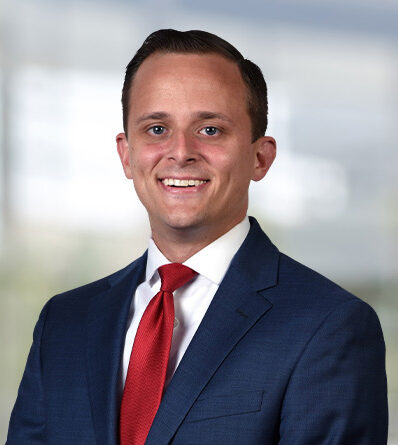Employment Law Report
The U.S. Department of Labor Releases Guidance on Small Business and Health Care Provider Exceptions to FFCRA
On April 6, 2020, the United States Department of Labor (DOL) published a set of regulations, effective through December 31, 2020, to implement the paid sick and emergency family medical leave expansion provisions of the Families First Coronavirus Response Act (FFCRA).
The FFCRA requires most employers with fewer than 500 workers to provide paid time off for reasons related to COVID-19. Specific reasons include:
- The employee is suffering from COVID-19 symptoms and seeking a medical diagnosis for same;
- the employee is caring for a family member subject to a quarantine; or
- the employee is caring for a child whose school or childcare center is closed due to the pandemic or for a similar reason.
The FFCRA exempts certain businesses from providing paid leave under particular circumstances. The DOL’s recently published regulations provide guidance on two of those exemptions: the small business and health care provider exemptions.
Small Business Exemption
Under the FFCRA, small businesses, including religious and nonprofit organizations, with fewer than 50 employees may be exempt from the paid sick leave and expanded family and medical leave “when the imposition of such requirements would jeopardize the viability of the business as an ongoing concern.”
The DOL regulations clarify that the small business exemption is not a total exemption to all aspects of the FFCRA’s new leave provisions, but only applies to leave taken to care for an employee’s child whose school or place of care is closed, or the child care provider is unavailable, for COVID-19 reasons. For leave taken for any other valid reason, the small business exemption would not apply.
Under the regulations, a small business may deny leave related to child care when:
- Such leave would cause the small business’s expenses and financial obligations to exceed available business revenue and cause the small business to cease operating at a minimal capacity; or
- the absence of the employee requesting leave would entail a substantial risk to the financial health or operational capability of the business because of their specialized skills, knowledge of the business, or responsibilities; or
- the small business cannot find other workers who are able, willing, and qualified, and who will be available at the time and place needed, to perform the labor or services provided by the employee requesting leave, and these labor or services are needed for the small business to operate at a minimal capacity.
If a small business employer can show any one of these circumstances, then that employer may deny the employee’s request for leave. But it is important to note that employers may not apply or seek advance approval for this exemption and thus will not know at the time of an employee’s leave request whether the DOL will agree that the exemption applies.
If an employer does deny leave due to one of the above exemptions, the DOL requires that an “authorized officer” of an employer electing to proceed under the small business exemption document the denial and retain the documentation in the business’s records. The DOL also mandates that small businesses that proceed under the exemption still post the DOL’s notice of employee rights under the FFCRA, which can be “posted” by emailing the notice to covered employees.
Health Care Provider Exemption
The FFCRA provides that an “employer of an employee who is a health care provider” may “elect to exclude such employee” from the FFCRA’s new leave provisions.
The DOL’s regulations now clarify the definition of “health care provider” for purposes of determining the employees who may be excluded. Under the regulations, a “health care provider” is:
Anyone employed at any doctor’s office, hospital, health care center, clinic, postsecondary educational institution offering health care instruction, medical school, local health department or agency, nursing facility, retirement facility, nursing home, home health care provider, any facility that performs laboratory or medical testing, pharmacy, OR any similar institution, employer, or entity.
The regulations state that this definition also includes (1) individuals and entities that contract with any of the institutions described in the primary definition to “provide services or maintain the operation of the facility,” as well as (2) anyone employed by an entity that “provides medical services, produces medical products, or is otherwise involved in the making of COVID-19 related medical equipment, tests, drugs, vaccines, diagnostic vehicles, or treatments.”
Return here for additional updates on the FFCRA.
